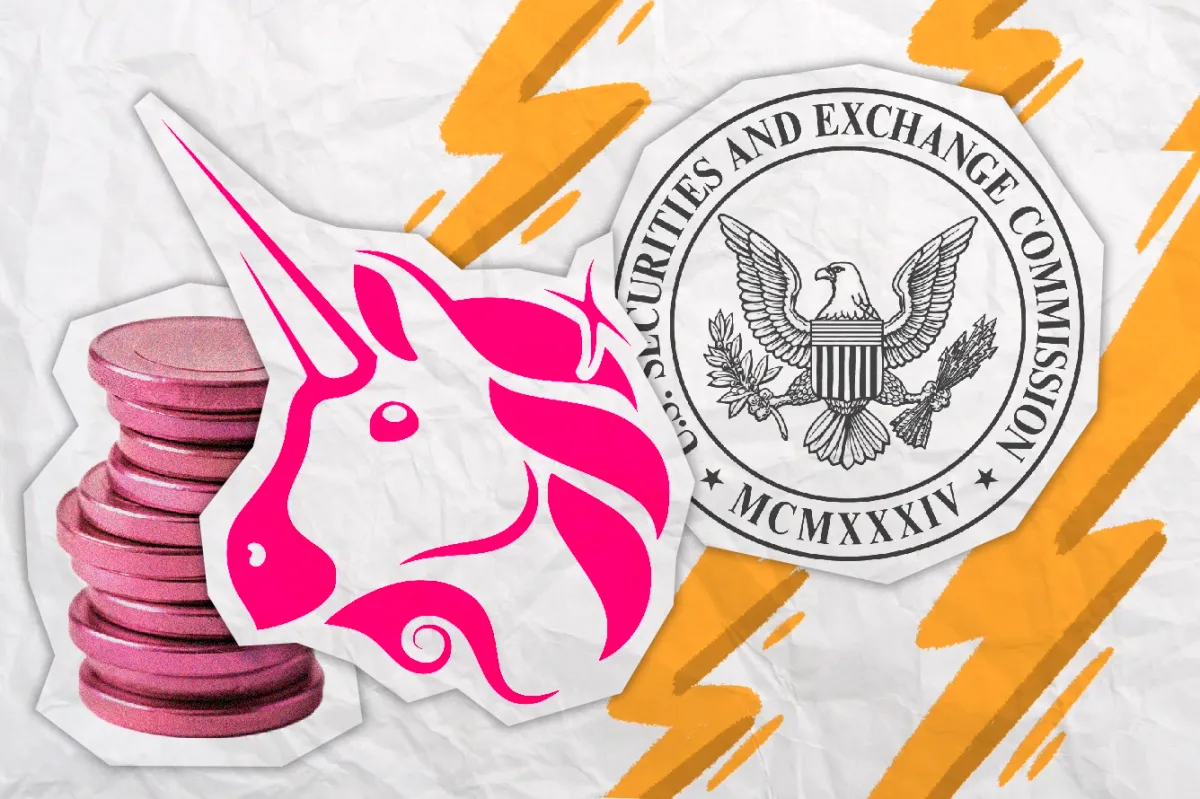
The U.S. Securities and Exchange Commission (SEC) issued a Wells notice to Uniswap, the world's largest decentralized exchange (DEX), on April 10. This action intensifies the ongoing debate about decentralized finance (DeFi) protocol regulations. A Wells notice proceeds possible enforcement action by the SEC, giving Uniswap an opportunity to respond to the SEC's concerns.
The reason for the Wells notice remains undisclosed by the SEC. However, it coincides with the regulator's increased scrutiny of the cryptocurrency industry, as evidenced by previous warnings issued to crypto exchanges such as Coinbase and a flurry of lawsuits against blockchain firms.
In a blog post on Wednesday, Uniswap argued that its core functionalities – the protocol, web application, and associated wallet infrastructure – do not meet the legal definitions of a securities exchange or broker. They maintain that the SEC lacks the authority to regulate their non-intermediated, self-custodial products and has failed to provide clear guidelines for DeFi projects.
Uniswap has publicly advocated for a well-defined legal framework and clear regulations within the U.S., criticizing the SEC's approach as "arbitrary enforcement and continued abuse of power."
"We believe that the SEC lacks the authority to regulate Uniswap because the protocol is entirely permissionless, autonomous, and non-custodial. There is no central authority that controls or operates the Uniswap protocol."
Even if the Ripple case establishes a broad interpretation of securities and the Howey test applies, Uniswap maintains the platform does not meet the criteria. They point to the recent dismissal of the SEC's claim in the Coinbase case regarding crypto wallets acting as brokers. Paul Rewal, Coinbase CLO, also mentioned the case on X, stating:
"Question: how can you square the SEC's claim that Uniswap acts as a broker with the Court's ruling against the SEC just a handful of days ago? Answer: you can't."
Uniswap also argued that their native UNI token should not be considered a security. The firm claims that UNI functions primarily as a utility token, granting holders governance rights over the Uniswap protocol. This distinction is crucial, as securities fall under the purview of the SEC, while utility tokens generally do not. Uniswap essentially argues that the SEC is trying to regulate an area outside its legal mandate.
The SEC's stance is, of course, different. Their focus could lie in the secondary market trading of UNI. While Uniswap itself might not be directly involved in these secondary market trades, the SEC could argue that by creating and facilitating access to UNI, Uniswap is essentially offering an investment contract, which falls under its regulatory umbrella.
Uniswap also pointed to its win in the Risley case, where a court ruled that Uniswap's model does not involve securities, similar to how secondary market trading of digital assets was not classified as securities in the SEC v. Ripple case. They referenced SEC Chair Gary Gensler's own statement about the need for congressional action.
Uniswap CLO Marvin Ammori said on X that the regulator's approach is "disappointing" but not unexpected. CEO Hayden Adams echoed a similar sentiment, vowing to counter the charges and reaffirming his confidence in the legality of Uniswap's products. He framed the future lawsuit as a battle for "financial technology and our industry." Adams also said he is ready for a lengthy battle with the SEC and that he will defend Uniswap's position all the way to the Supreme Court if necessary.
"The SEC's mission is 'protecting investors, maintaining fair, orderly, and efficient markets, and facilitating capital formation.' This is a noble mission. I would argue Uniswap does a far better job of this today than the SEC."
Today @Uniswap Labs received a Wells notice from the SEC.
— hayden.eth 🦄 (@haydenzadams) April 10, 2024
I’m not surprised. Just annoyed, disappointed, and ready to fight.
I am confident that the products we offer are legal and that our work is on the right side of history. But it’s been clear for a while that rather than…
The price of Uniswap's native token, UNI, plummeted by 17% in a single day after the Wells Notice announcement. Three major Uniswap whales —large token holders identified by the on-chain analysis platform Lookonchain— reportedly sold a combined $20 million worth of UNI shortly after the announcement.
Affected by the #SEC Wells Notice received by #UniswapLabs, 3 whales dumped 2.03M $UNI($20M) and the price of $UNI dropped by ~17%.
— Lookonchain (@lookonchain) April 11, 2024
0x2F8b and 0x3555 deposited the 1.25M $UNI($11.7M) received from Binance on Mar 3, 2023 to #Binance 1 hour ago, and will make ~$3.5M if sell.… pic.twitter.com/Kj5M6Irtlr

